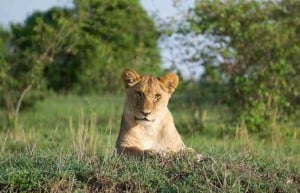
Safari in Tanzania – Incredible Tanzania Safari Tips You Should Know
Tanzania is one of the best places to experience a classic African safari, but if you’re planning on going for the first time then you might want to take a little time to plan ahead and read up on some great tips to help you improve the experience. While Tanzania can be an excellent place for safaris, it’s important not to go spontaneously and instead, learn about the seasons and various requirements necessary to make the experience much better.
Going to Safari in Tanzania at the right time can greatly increase the number of animals you’ll see and picking the right luggage and gear to bring with you can make a huge difference to your enjoyment. So without further ado, let’s take a look at some incredible Tanzania safari tips that you should know.
1. Don’t forget to get your visa sorted as soon as possible
You’re likely going to need a visa, so it’s a good idea to obtain one in advance. While you can purchase a visa once you reach Tanzania, it’s usually filled with crowds of people. You can avoid these long queues by having your visa sent to you or obtaining it from the relevant services in your country. Remember that your passport also needs to have a few pages for the visa, so if you’re a frequent traveller you’ll want to watch out for that.
Without a visa, you’re going to be denied entry into Tanzania and you’ll be forced to go back to your home country. If you plan to send your application through the mail, then you may need to wait several days or even over a week before it arrives. Make sure your account for this period of time if you’ve already booked your safari and trip to Tanzania because you don’t want it to arrive when you’re not at home.
2. You need to pick the right time and place to go
Tanzania is the perfect place to visit if you want to go on a safari, but it’s important to remember that while there are no bad seasons to visit, there are seasons where you might not get the best experience. The Tanzania safari tips for the best time to go on for safari tours is helpful.
The best time to visit would be between June and October. These are the best months because you’ll get to see the great wildebeest migration that takes place. It’s one of the most iconic seasonal events in Tanzania where wildebeest migrate from the Serengeti National Park into the Maasai Mara in Kenya, then back across the border and return to Ngorongoro. In addition, there is very little rain during this season which means fewer mosquitoes and animals are fairly easy to spot because there is less vegetation and only sparse watering holes. It can get quite cold during this season at night, so make sure you bring some warm clothing.
Between November and May, there is lush green scenery that is the complete opposite to the other seasons. There are many migratory birds during these months, making it fantastic for bird watching. You’ll still see plenty of wildlife around despite there being more greenery. Another positive is that it’s the low season for safaris in Tanzania, meaning there are fewer crowds and prices tend to be a little cheaper. Unfortunately, March to May is arguably the wettest period in Tanzania and there will be a lot of rain. This may cause cancellations to the safaris, but it’s rare that this happens,
Where you decide to go can also affect the wildlife you see. The Serengeti National Park is arguably the best place to go for the Great Migration, but you’ll need to visit at specific times of the year if you want to catch the wildebeest. On the other hand, Ngorongoro Crater is fantastic at any time of the year, making it the preferred place to go if you can’t catch the Great Migration. If you’d love to spot lions climbing up trees and relaxing in the sun, then Lake Manyara is a great place to visit. It’s also fantastic for bird watching and you can get very close to the elephants here.
In general, you want to do as much research as possible to ensure that you’re going at a good time. If you want to see specific wildlife, then you should do a bit of research to ensure that you’re going at the right time to spot them. If you’re not too bothered about which animals you see, then it’s a great idea to catch the Great Migration or visit a place which has plenty of activity during the time you plan to visit.

3. Medical preparations are important, so don’t neglect them
Tanzania requires you to take anti-malaria medication and this absolutely has to be arranged before you travel. You will be required to take the medication even before you arrive at Tanzania and you need to stick to the right dosage in order for the medication to be effective. It will require a prescription but you can often do this by heading to your doctor’s office and letting them know that you plan to travel to Tanzania.
You may also need to worry about vaccinations and other medical concerns. Certain countries will ask you to take extra precautions, so make sure you speak to your doctor before you travel to Tanzania. Ideally, you should speak to them after you’ve confirmed and booked your tickets. Some services allow you to request your prescription online and you’ll be sent the pills as well, making it extra convenient.
4. You can only take a bit of luggage on a safari, so plan ahead
To avoid disappointment, you’re going to want to pack as little as possible. The more you carry, the more you’ll have to haul around the different lodges, and there’s only a limited amount of space in the jeeps that you will be using to traverse Tanzania while on a safari. Check travel documents to make sure you meet the right requirements, and never forget to check luggage limitations with the lodge or safari company that you have chosen.
You’ll want to bring an extra small bag with you in addition to your luggage. This will be the bag that you bring with you while on a safari. This should be a rather flexible bag because they will be squashed into the jeep with everyone else’s luggage. In some cases, bringing a larger bag will mean that someone will have to take out some items or leave them at the lodge.
In terms of what you want to take with you, it’s important to carry all of your regular holiday essentials and medication, but you should also keep in mind that you’ll have to pack a few different items in your smaller bag for when you’re out on a safari. You’ll want to bring some essentials such as sunscreen, mosquito repellent and sanitary cream if needed. A small first aid kit that contains things like painkillers, stomach medication and plasters is also welcome, but you don’t need to bring too much. For the safari itself, binoculars are a must to help you see further and we also recommend taking a camera with you. While a smartphone camera is fine for social media, taking a high-quality camera is fantastic if you have one. If you don’t, then there’s no need to splash out extra money on it for the safari alone and your camera will be fine.
Many people are tempted to bring electronics such as tablets or laptops. If you have a small laptop and plan to use it to write or do some light browsing then it’s absolutely fine, but if a tablet device can get this done as well then we would recommend that instead. If you have a heavy laptop that takes up a lot of luggage space, then we cannot recommend bringing it because it will be heavy and could get damaged in your bags. We wouldn’t recommend bringing any electronic device that isn’t sturdy and small enough so that it won’t be damaged when your bags are moved around.
5. It’s important to bring the right clothing for the season
The rain season usually takes place between March and May so make sure to bring some extra waterproof clothing in the event that the rain starts when you’re out on your safari. November to December is another short rain season but these are much shorter in duration and might not require waterproof clothing. You’ll also want to bring a bit more clothing because it can get rather chilly during the nights.
During the dry season between June and October, it’s a good idea to bring breathable clothing that will help cool you down. However, despite it being rather hot during the day, you should also bring a pair of longer trousers so that you can protect your legs from mosquito bites when you’re at your lodge. Extra layers are also a good idea since it can get rather cold during the night. If the weather is right and your lodge has a swimming pool, a swimsuit can be a good addition to your luggage as well since it will help cool you down and refresh you when you come back from a safari.
When you’re actually on your safari, you should bring comfortable walking boots since you will likely do a lot of moving around. In the evenings, you can bring a pair of sandals or casual shoes, but try not to go barefoot as you will risk mosquito bites. The colour of your clothing will also be important to think about. You typically want to avoid any kind of complicated patterns like camouflage clothing and you don’t need to bring fashionable or smart items since everyone will be casual and likely covered in dust. If possible, bring neutral colours like brown and green so that you blend in with the surroundings and are likely less likely to alert the wildlife and draw attention.
It may sound like you need to bring a lot of clothes, but there will likely be some limited laundry services to clean your clothes and you’re always better off travelling lighter. Bring a few changes of clothes, but keep in mind that packing light is always preferred.
Final words
Going to Tanzania for a safari experience is a wonderful opportunity that not many people get to experience in their life. If you want to make it a memorable experience, make sure you follow these tips and remember that planning is essential to any good Safari in Tanzania.